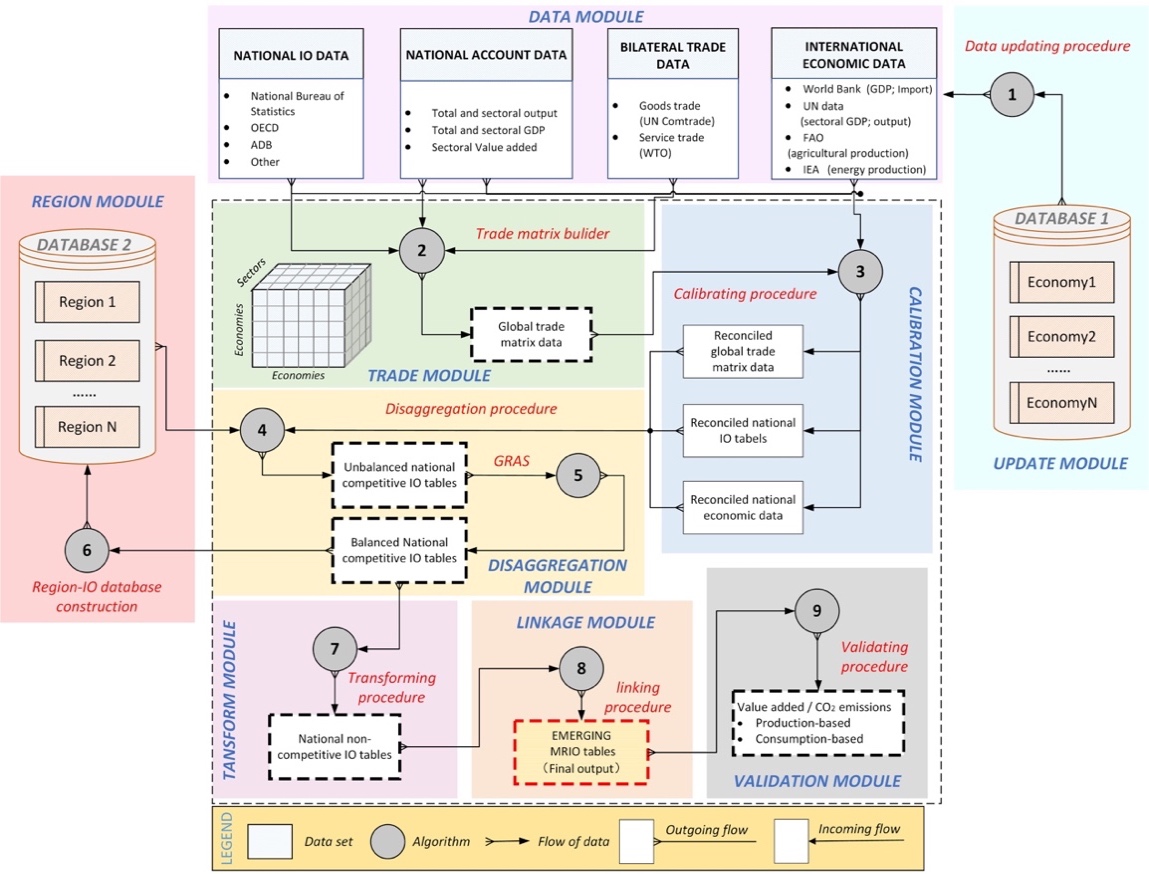Emerging economies are playing an increasingly important role in the global supply chain in the context of globalization. At the same time, these economies face multiple challenges, including increasing greenhouse gas emissions, poverty and climate change, which can be amplified in the supply chain. However, the existing multi-regional input-output (MRIO) databases do not reflect the connection with enough regional and sector details, due to limited data availability, which impedes the analysis of historical supply chains and international trade patterns, and the forecast of future trends.
To fill this gap, Prof. Dabo Guan’s research group from the Department of Earth System Science of Tsinghua University, in cooperation with scholars from University College London, the Norwegian University of Science and Technology, and the University of Gröningen, have proposed a new, modular compilation framework method for MRIO (EMERGING), with completely independent intellectual property rights. Compared with existing database, the EMERGING database has the following five characteristics: (1) a global scale and including emerging economics to the largest extent; (2) containing enough detail on sectors to capture structural changes in supply chains and economic developments; (3) covering changes over time; (4) up-to-date representation of changes to allow for timely policy implications; and (5) using modular compilation for timely updates.
Based on this model framework, the EMERGING MRIO database now covers 135 sectors in 245 economies over the period 2015-2019. It will be an essential tool to conduct supply-chain and environmental impact analysis, especially for global emerging economies. The methodology paper on EMERGING MRIO construction is published in the Journal of Industrial Ecology recently with the title “Full-scale, near real-time multi-regional input-output table for the global emerging economies (EMERGING)”. The full database is open access: https://ceads.net/.

Figure 1 Framework of EMERGING database
Jingwen Huo, PhD student of the Department of Earth System Science of Tsinghua University, and Peipei Chen, PhD student of UCL, are the co-first authors of the paper. Prof. Dabo Guan of Tsinghua University and Associate Prof. Jing Meng of UCL are the co-corresponding authors of the paper. Collaborators include Dr. Heran Zheng from the Norwegian University of Science and Technology and Prof. Klaus Hubacek from the University of Groningen.
This research is funded by the National Natural Science Foundation of China.
Paper link:
https://doi.org/10.1111/jiec.13264
Editors: John Olbrich, Li Han

